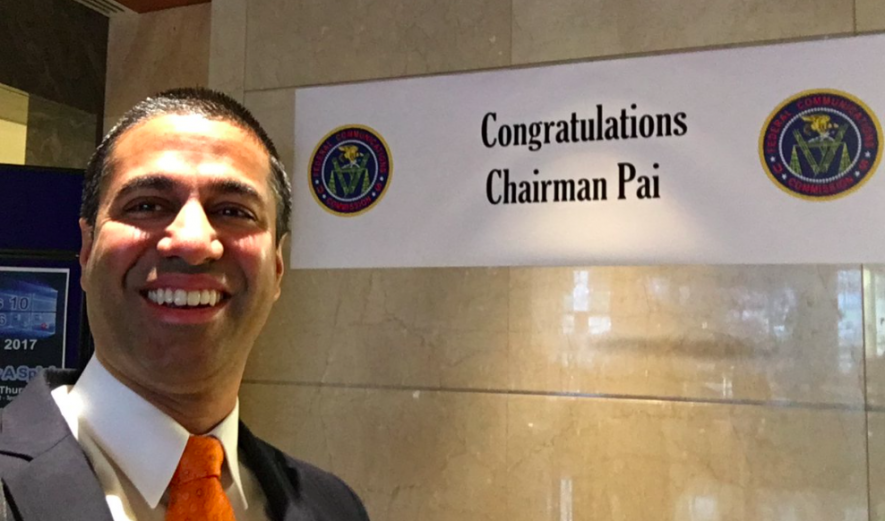FCC Votes to Kill Net Neutrality, 'Unacceptable Interference of Basic Human Rights' Say Organisations around the World

The U.S. Federal Communications Commission (FCC) has now voted to kill net neutrality. The vote reversing net neutrality passed 3-2, with the five FCC commissioners voting along party lines (three Republicans and two Democrats.) These rules were passed under the Obama administration in 2015.
FCC chairman, Ajit Pai, has consistently been accused of pandering to corporate interests, especially since he is a former lobbyist and an ex-employee of Verizon. And as though slashing net neutrality was not serious enough, Pai recorded a video of himself with a click-bait journalism website, stating five things still possible under these new Internet rules. The statements made by Pai in this video mock the intelligence of the regular citizens. According to Pai, users only need the internet for frivolous purposes, such as to post pictures of food or selfies with pets.
Pai’s corporate links prompted activists to project “Property of Verizon” on the FCC headquarters building, ahead of the net neutrality vote.

This comes at a time when India has taken a welcome step and worked towards making net neutrality an integral part of Internet services. After years of public consultation, TRAI passed recommendations strongly in favour of net neutrality two weeks ago.
The response to FCC’s move has been highly critical all over the world.
“The ending of Net Neutrality in the U.S. could be the beginning of the end of the open, interoperable, free internet. It is now a question of how much, not if, freedom of expression online will be undermined around the world as a result of this short-sighted decision to enrich the entrenched near-monopolies who control internet access in the United States," said Quinn McKew, Deputy Executive Director of ARTICLE 19.
Get the latest reports & analysis with people's perspective on Protests, movements & deep analytical videos, discussions of the current affairs in your Telegram app. Subscribe to NewsClick's Telegram channel & get Real-Time updates on stories, as they get published on our website.
























